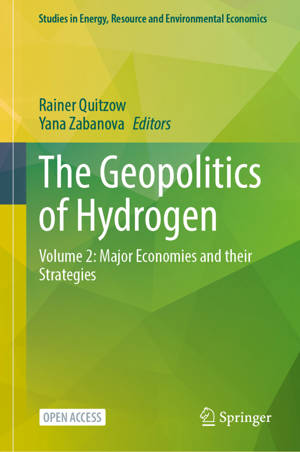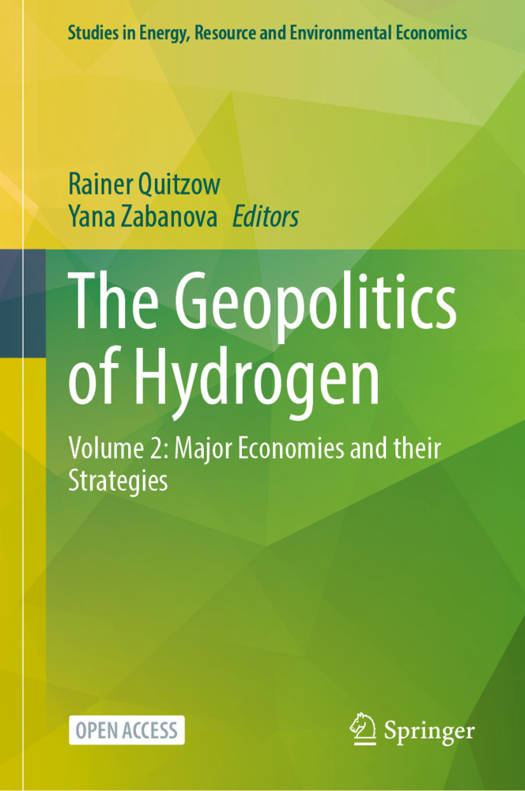
- Retrait gratuit dans votre magasin Club
- 7.000.000 titres dans notre catalogue
- Payer en toute sécurité
- Toujours un magasin près de chez vous
- Retrait gratuit dans votre magasin Club
- 7.000.0000 titres dans notre catalogue
- Payer en toute sécurité
- Toujours un magasin près de chez vous
The Geopolitics of Hydrogen
Volume 2: Major Economies and Their Strategies
Description
This open access book offers a comprehensive analysis of hydrogen strategies in major economies, exploring their domestic and international dimensions while highlighting the significance of bilateral and multilateral engagements. The authors contextualize these strategies within the geopolitical landscape, examining how governments shape the emerging hydrogen economy and the underlying interests that drive these policies.
Each country chapter provides an in-depth review of hydrogen policy, encompassing both domestic and international aspects. The book delves into important stakeholder interests at the national level and considers the broader energy and foreign policy legacies that influence the evolving policy landscape. By examining these factors, readers gain a nuanced understanding of the multifaceted dynamics surrounding hydrogen initiatives.
The framing chapter establishes the pivotal role of government policy in shaping the emerging hydrogen economy, providing a framework for analysis that guides the subsequent chapters. It sets the stage for comprehending the complexities and interdependencies inherent in hydrogen strategies.
The final chapter serves as a synthesis, bringing together the key findings and connecting them with the broader geopolitical context of the hydrogen sector. This chapter provides valuable insights that deepen our understanding of how these strategies fit into the global landscape and their implications on international relations.
This book is a vital resource for policymakers, researchers, and industry professionals seeking an in-depth exploration of hydrogen strategies. By shedding light on both domestic and international dimensions, and by examining the geopolitical factors at play, it offers a comprehensive perspective on the current and future state of the hydrogen economy.
Spécifications
Parties prenantes
- Editeur:
Contenu
- Nombre de pages :
- 224
- Langue:
- Anglais
- Collection :
Caractéristiques
- EAN:
- 9783031840210
- Date de parution :
- 28-05-25
- Format:
- Livre relié
- Format numérique:
- Genaaid
- Dimensions :
- 155 mm x 235 mm

Les avis
Nous publions uniquement les avis qui respectent les conditions requises. Consultez nos conditions pour les avis.





